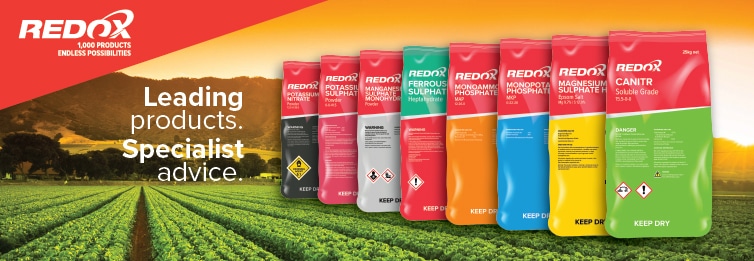Fertiliser and crop nutrition are two key components in the success story of Australia’s food production. No matter what you are growing, whether it’s in your back yard or on a commercial level your crop nutrients matter.
Fertilizer has allowed us to increase yields significantly and has been vital to ensure food security for the ever-growing global population. Fertiliser application and efficiency have improved dramatically through research, field trials and technology. A targeted nutrition program economically contributes to sustainable produce.
The consumer and industry are now more than ever focused on this word “sustainability.” Growers and industry stakeholders are already implementing sustainable strategies as it not only conserves the environment they rely on so heavily, but also improves their bottom line.
Nutrient Fundamentals
The Oxford Dictionary defines sustainability as “The property of being environmentally sustainable; the degree to which a process or enterprise is able to be maintained or continued while avoiding the long-term depletion of natural resources.” When it comes to growing your crop, the fundamentals are that the nutrient cycle will take place and nutrients will be required and removed from the soil or growing media to produce the crop.
Nutrients are either then removed from the cycle through losses or in the form of produce and a percentage are returned to the soil through decomposition of plant litter. So how do you ensure you meet your crops nutritional demands and avoid the long-term depletion of natural resources to maintain your enterprise? There are a few key factors to address first.
- A complete soil analysis to understand soil type, fertility levels, pH, soil carbon and organic matter levels.
- Understanding your specific crops nutrient removal and uptake patterns.
- Understanding your regional climate conditions such as rainfall and weather patterns.

The nutrient cycle: Crop nutrients will be required and removed from the soil or growing media to produce the crop.
Addressing Nutrient Deficiencies
Once you have this information at your disposal you can accurately anticipate and address likely nutrient deficiencies or surpluses and manage them like a nutrient budget. Any excess nutrients will either be lost to ground water, fixed to the soil or cause a nutrient imbalance in the profile.
This can be expensive, detrimental to the environment and comprise yield and quality. Therefore, it is important that your crop utilises what’s already present, and that you supplement any shortfalls in the cycle. It is also equally important that you account for and address your soils organic matter and soil biology to ensure the environment is favourable for micro-organisms. These micro-organisms convert organic matter into nutrients for your crop, adding to the cycle.
Here at Redox we take a holistic approach to sustainable nutrient management by addressing the entire cycle to ensure your enterprise can continue without depleting your natural environment. Whether you need macro or micro-nutrients to address deficiencies, or biological products and stimulants to support your soil biology. We have a range of products to match your enterprises requirements.
Our quality products and services are supported with the expertise of our agronomists who offer tailored advice to maximise production with best environmental practice.
